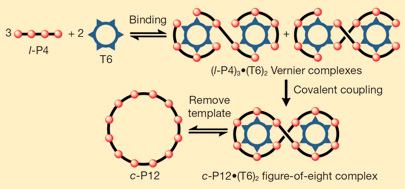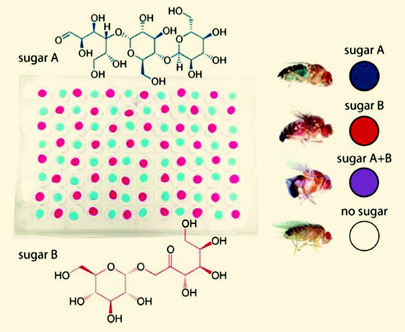From my article in Chemistry World:
UK researchers have designed a new highly effective method to construct large molecules of a defined size using simple templates.Recent approaches to the construction of nanomaterials have made use of advanced methods such as living polymerisation and self-assembly, but these techniques often produce a mixture of products. Taking inspiration from nature, which uses sophisticated templates such as the ribosome to make precise complex molecules, Harry Anderson's group at the University of Oxford has developed a new strategy to synthesise macromolecules with precise lengths using basic templates...read more.
UK researchers have designed a new highly effective method to construct large molecules of a defined size using simple templates.Recent approaches to the construction of nanomaterials have made use of advanced methods such as living polymerisation and self-assembly, but these techniques often produce a mixture of products. Taking inspiration from nature, which uses sophisticated templates such as the ribosome to make precise complex molecules, Harry Anderson's group at the University of Oxford has developed a new strategy to synthesise macromolecules with precise lengths using basic templates...read more.



















